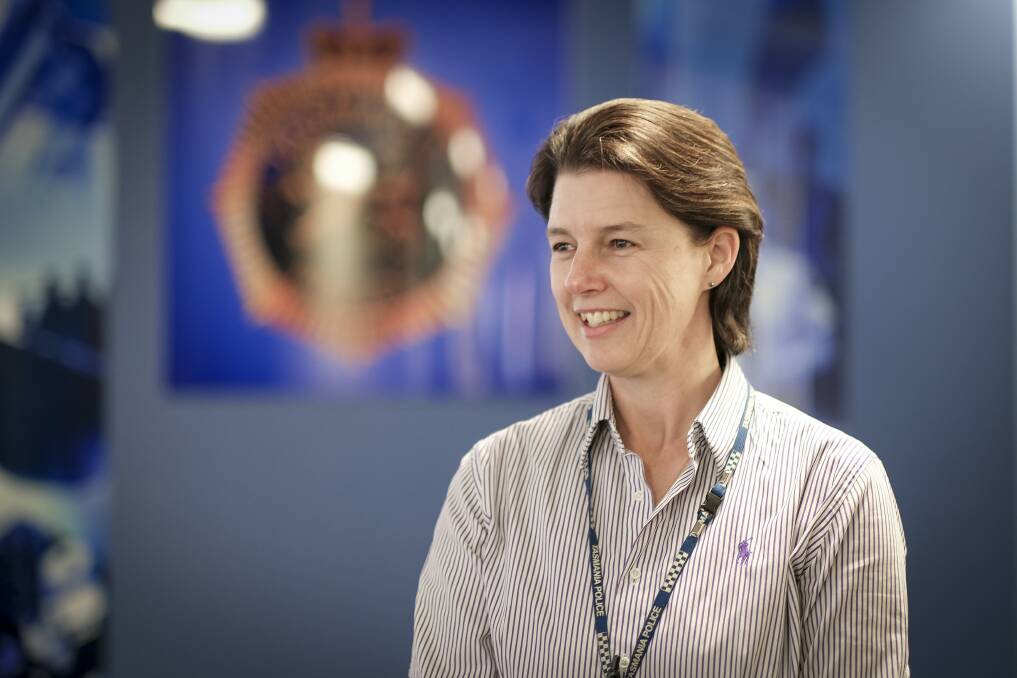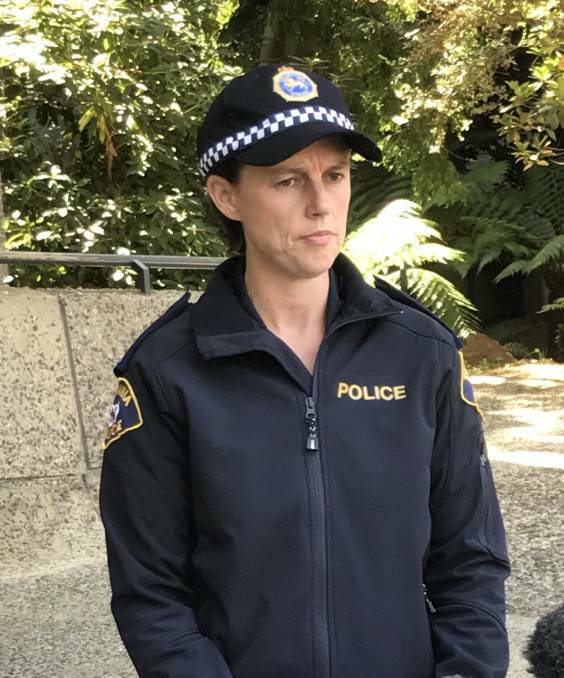
Growing up new Northern District Tasmania Police Detective Inspector Mel Groves learnt from an early age what it would take to make it in the police force.
Subscribe now for unlimited access.
$0/
(min cost $0)
or signup to continue reading
"My father was a police officer and I was heavily influenced by that in my childhood. Seeing the good sides, because you don't see the bad sides as a child, of what he was doing was a big factor for me to be able to join the police force myself," Detective Inspector Groves said.
Her father ended up serving as a police officer for about 40 years and laid a path for his daughter to follow.
While Tasmania Police has a long history of family members being inspired by their relative to join the police force, Detective Inspector Groves was never content to sit in her father's shadow.
After joining up at age 19 in 1996 and graduating by October 4 that same year, she flew up the ranks and was promoted to the role of sergeant within 10 years under circumstances she said illustrated the kind of workforce Tasmania Police was.
"I got promoted while I was actually on maternity leave," Detective Inspector Groves said.
It showed me there's opportunities as well. It's not a career path that if you choose to go down the family line asa a female you'll be overloaded ... that's certainly not the case.
- Detective Inspector Mel Groves
"My focus was my children for that point moving forward. I was a new mum, I had another child a couple of years later and I was quite happy."
Detective Inspector Groves managed to start her family and set them into the world with a firm grounding, while managing to maintain a blooming career in the police force.
While she could not have known the extent at the time, having the capacity to balance her family and work life so effectively gave weight to the direction her career path would take 15 years later when she was promoted to Detective Inspector.
The newly minted Detective Inspector Groves found herself in charge of Tasmania Police teams including the crime management unit, the victims team and family violence unit and the forensics team.
"The victims team and family violence unit are the ones that provide a voice for the victims," she said.
"That involves advocating on their behalf to conduct the investigations to then give the victim the best possible outcome of getting a successful conviction, then providing support to other agencies."
As is typical within Tasmania Police, upon promotion a Detective Inspector is directed to a role management believes they will fit, as opposed to the individual applying for the role themselves. The leader of the victims and family violence units may well have one of the most important roles in the whole organisation.
The latest Tasmania Police Corporate Performance Report shows the North of Tasmania reported 1260 victim related offences in 12 months to March with 498 perpetrated against a family member or de facto spouse.
In her role Detective Inspector Groves coordinates the police response to such crimes in a way she hopes has, and will continue to, work to adequately help people who are placed in vulnerable situations.
"This is my first victims based role and it's good because the main reason I joined the police force in the first place was so I could help people, make a difference in people's lives and keep the community safe," she said.
I think victims have got more confidence in police now, and in the whole government system moving forward, so they're more comfortable in reporting matter with those being thoroughly investigated through to those successful convictions.
- Detective Inspector Mel Groves
"It's a new and exciting challenge to now be able to work with a team that gives the voice to the victims, and have that different focus."
Detective Inspector Groves is confident her role overseeing how the specialist Tasmania Police teams respond to victims crimes will contribute to seeing victims become even more comfortable to see justice for themselves.
She said she oversaw a team of passionate individuals genuine about making a difference for any people they may need to help out.

With her immediate future laid before her, Detective Inspector Groves took a moment to reflect on some of the more memorable moments in her career that led her to developing the expertise she has brought into the role.
One of which was a statewide operation called Dorothy that saw her part of a team that charged 20 people including the leader of the Tasmanian Rebels Motorcycle Club, who was later deported as a result.
But having served in the police force for nearing 25 years, Detective Inspector Groves said one of the reason she remained excited in her workplace, and something that continued to encourage her in her work was being at the forefront in a continually adapting industry.
"Just seeing how policing has changed over time, and moving with technology - which now plays a bigger part in where we're at - is a highlight," she said.
"It is now intelligence led policing and our crime management unit plays a pivotal part in that."
Under Detective Inspector Groves' watch the crime management unit turns initial information into intelligence, which leads all police investigations under her watch.
With almost a quarter of a century's experience behind her, Detective Inspector Groves is leading the way in her latest Launceston based role.
Growing up in the city, and having been fortunate enough to have never strayed far from it in her professional life, she believes she is well placed to fulfil the ambition she brought with her to the police force - to make her community safer and happier.
Our journalists work hard to provide local, up-to-date news to the community. This is how you can continue to access our trusted content:
- Bookmark www.examiner.com.au
- Make sure you are signed up for our breaking and regular headlines newsletters
- Follow us on Twitter: @examineronline
- Follow us on Instagram: @examineronline
- Follow us on Google News: The Examiner



